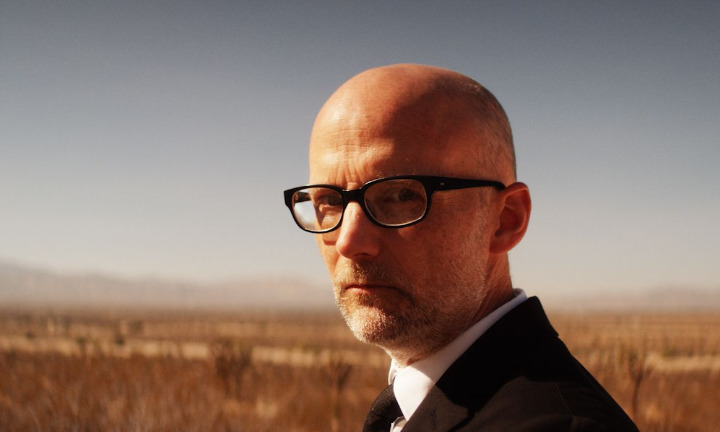Moby is the perfect subject for a documentary. Everyone knows who he is and yet, he has remained a mysterious figure. His face isn’t well known and his love life isn’t a matter for gossip. While he’s had huge hits, Moby isn’t associated with a group of influential musicians although people might know that he has roots in punk rock. He is famous as a producer and was a key figure in the dancehall scene of the Nineties but that doesn’t confer superstar status in a world ruled by photogenic celebrities like Taylor Swift and Miley Cyrus.
But that doesn’t mean an audience isn’t interested in knowing more about him. He’s created influential and arguably, great music and seems to be the kind of guy who has lots to say. After all, not many people would have their name referenced through Herman Melville’s great novel. Which means that Moby Doc is a film that is waiting to be embraced by a public—if it’s worthy of close examination.
Clearly, director Rob Gordon Bralver approached Moby Doc with an experimental artistic attitude in mind. Dubbed a “surrealist documentary,” Bralver and Moby’s film has deliberately added wild, disparate elements to a piece, which might have been more straight forward. Since Moby’s music tends to be long, atmospheric and danceable, stunning visuals accompany much of the work that made the musician so highly regarded 25 years ago. Bralver employs an animator, Steve Emmons, to add to the illustrative palette of the doc. And Moby is clearly encouraged to digress as he tells his life story to the camera.
Having noted all of that, it’s fair to say that Moby Doc isn’t all that surrealist in its approach to Moby and his work. Even the occasional presence of David Lynch, a Moby admirer and friend, doesn’t really add much edginess to the film. What’s here is the tale of a talented musician, who probably is related to Melville (it is his middle name), and achieved a far greater success than he imagined. We find out about his rotten childhood—his father died young, his mother was ill-equipped to raise him and was usually broke—which only got better when he discovered music. A guitarist and songwriter, he moved to New York when he was 24 and experienced a fairly rapid road to success as a DJ, producer and remixer. His single “Go” mixed with “Laura’s Theme” from Lynch’s Twin Peaks propelled him to European hit status in 1991, allowing him to flourish until he made a terrible career move five years later with his very personal punk-oriented album Animal Rights. Unfortunately, the public wasn’t interested in veganism and animal activism then, which cost Moby money as he bought himself out of an expensive record contract.
Luckily, Play, his next album, became a huge hit worldwide in 2000, leaving the 35-year-old Moby in excellent financial and artistic shape. Since that time, Moby has been able to make the music he wants while living in New York and Los Angeles. For years, he was close to David Bowie, which still means a lot to him. In the film, Moby is frank about his problems with alcoholism and admits to having pursued the wayward existence of an excessive rock star for several years. It’s clear that he had to fight personal demons, likely based on his difficult childhood, and there are moments where one feels not only Moby’s pain but also his self-pity, which hopefully, he has now conquered.
What we see in Moby Doc is a musician, who has faced battles but is now on an even keel. He’s still making fine work and remains an animal rights activist. While Bralver’s documentary is not a revelation, it’s one that is fine to watch. One thing is sure: we now know what Moby looks like.












